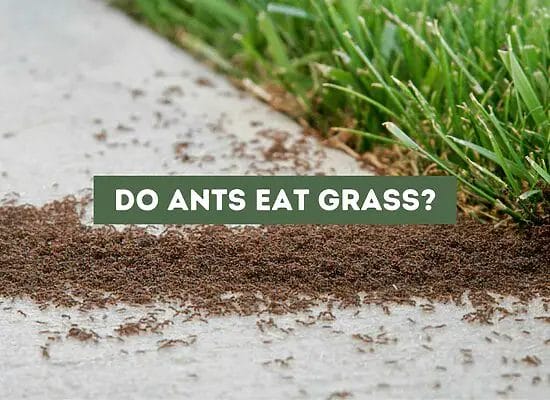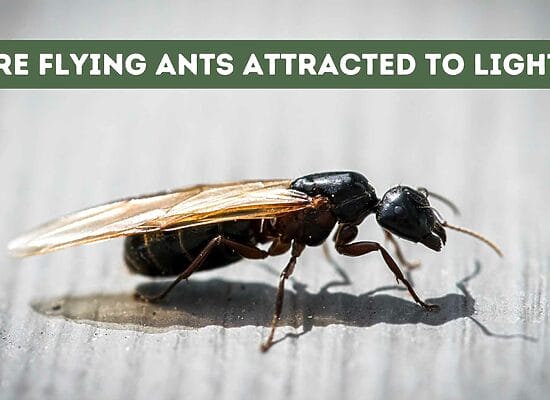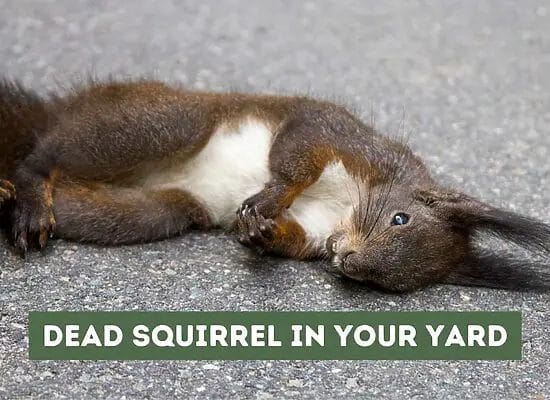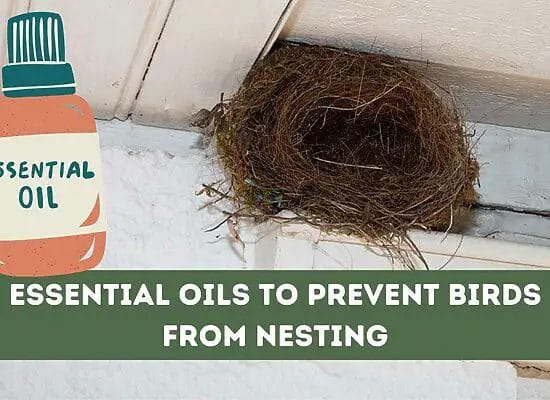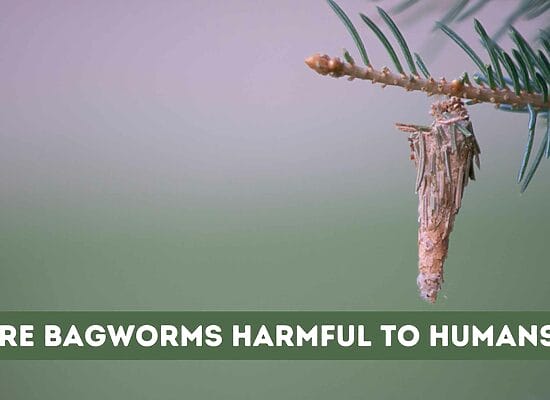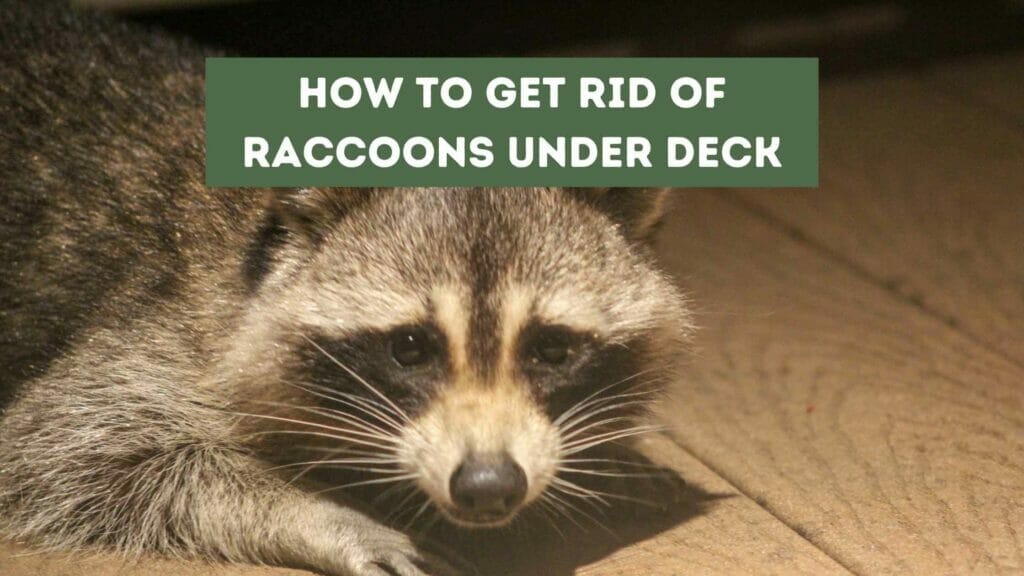
Are you tired of hearing the pitter-patter of little raccoon feet under your deck? Fortunately, there are several humane and effective ways to get rid of raccoons under deck and keep raccoons away.
Raccoons are cute, but they can cause a lot of damage to your property. They can chew through electrical wires, rip up insulation, and leave behind a mess of feces and urine. Not to mention, they can carry diseases like rabies. So, it’s important to get rid of raccoons under your deck as soon as possible.
In this article, we’ll go over some tips and tricks for getting rid of raccoons under your deck and keeping them away for good.
Key takeaways:
- Raccoons can be dangerous to humans as they carry diseases like rabies and leptospirosis.
- Raccoons can cause property damage by chewing through wires and digging up lawns.
- Sealing off access points and removing potential food sources is important to keep raccoons away.
- Deterrent devices like motion-activated sprinklers and lights can help in keeping raccoons away.
- If other methods fail, trapping and relocating raccoons may be necessary.
- Calling a professional wildlife removal service is recommended for raccoon infestations.
- Taking precautions and raccoon-proofing your deck can help prevent future infestations.
Are Raccoons Dangerous To Humans?
If you have raccoons living under your deck, you may be wondering if they are dangerous to humans. The short answer is yes, raccoons can be dangerous to humans. They carry diseases, can be aggressive if cornered or protecting their young, and can cause property damage.
One of the most significant risks associated with raccoons is the potential transmission of rabies. Raccoons are one of the primary carriers of this disease, which can be fatal if left untreated. If you are bitten or scratched by a raccoon, it is essential to seek medical attention right away.
Another risk associated with raccoons is the potential transmission of leptospirosis. This bacterial infection can be transmitted through contact with raccoon urine or contaminated soil and water. Symptoms can range from mild to severe and may include fever, headache, and muscle aches.
Raccoons can also be carriers of other diseases, including salmonella and E. coli. These bacteria can be transmitted through contact with raccoon feces, which can be found in and around their dens.
In addition to the potential health risks, raccoons can also cause property damage. They are known to dig up lawns and gardens in search of food and can cause damage to roofs, siding, and other structures.
To protect yourself and your property from raccoons, it is essential to take precautions. Keep your garbage cans securely closed, remove any potential food sources from your yard, and seal up any openings or holes in your deck or home where raccoons may be able to enter.
If you suspect that you have a raccoon infestation under your deck, it is best to call a professional wildlife removal service. They can safely and humanely remove the raccoons and take steps to prevent future infestations.
Remember, while raccoons may be cute and entertaining to watch from a distance, it is essential to take precautions to protect yourself and your property from the potential dangers they can pose.
Do Raccoons Cause Problems if They Live Under Your Deck?
Having raccoons living under your deck can be a nuisance and cause problems for you and your family. Raccoons are known to cause damage to your property, spread diseases, and even pose a threat to your pets. Here are some of the problems that raccoons can cause if they are living under your deck:
- Damage to Property: Raccoons can cause damage to your deck, insulation, and electrical wiring. They can also dig holes in your yard and garden, causing damage to your plants and flowers.
- Spread of Diseases: Raccoons can carry diseases such as rabies, leptospirosis, and roundworm. They can spread these diseases to humans and pets through their urine, feces, and saliva.
- Threat to Pets: Raccoons are known to attack and kill small pets such as cats and small dogs. They can also transmit diseases to your pets.
- Noise and Odor: Raccoons can be noisy and cause a disturbance with their scratching and digging. They can also leave a strong odor that can be unpleasant for you and your neighbors.
Why Do Raccoons Like Decks?
If you have a deck, you may have noticed raccoons scurrying around it at night. But why do raccoons like decks so much? There are a few reasons why these curious critters are drawn to this outdoor structure.
Firstly, decks provide a safe and sheltered environment for raccoons to nest. The space underneath the deck is perfect for them to create a den, where they can rest during the day and emerge at night to forage for food. The underside of a deck also offers protection from predators and inclement weather.
In addition to shelter, decks often provide easy access to food sources. Raccoons are omnivores and will eat just about anything, from insects and small animals to fruits and vegetables. If you have a bird feeder or compost bin on your deck, these can attract raccoons looking for a meal.
Finally, raccoons are naturally curious creatures and love to explore new environments. A deck offers a fun and stimulating place for them to climb, jump, and play.
Signs of Raccoon Infestation Under The Deck
If you suspect that you have raccoons under your deck or shed, it’s important to look for signs of infestation. Raccoons are known to make dens in dark and secluded areas, and your deck or shed may be the perfect spot for them to settle in. Here are some signs that you may have a raccoon living under your deck:
- Noises: Raccoons are nocturnal animals, so you may hear them moving around under your deck at night. They may also make chirping or chattering sounds.
- Damage: Raccoons can cause damage to your deck or shed as they move in and out of their den. You may notice scratches or bite marks on the wood or other materials.
- Nesting materials: Raccoons like to create a cozy nest for their young, so you may see piles of leaves, grass, or other materials near the entrance to their den.
- Tracks: Raccoon tracks are distinctive and can be easily identified. They have five toes and resemble tiny human hands with claw marks at the end.
- Droppings: Raccoon droppings are usually found near their den. They are dark in color, about the size of a grape, and may contain undigested food.
If you have identified any of these signs, it’s important to take action to get rid of the raccoons. Leaving them under your deck or shed can lead to further damage, and they may even find their way into your attic.
Pro Tip: To prevent raccoons from making a den under your deck or shed, make sure to seal off any entrances or gaps that they may be using to get in. You can also use bright lights or loud noises to deter them from settling in the area.
How to Remove Raccoons from Under The Deck
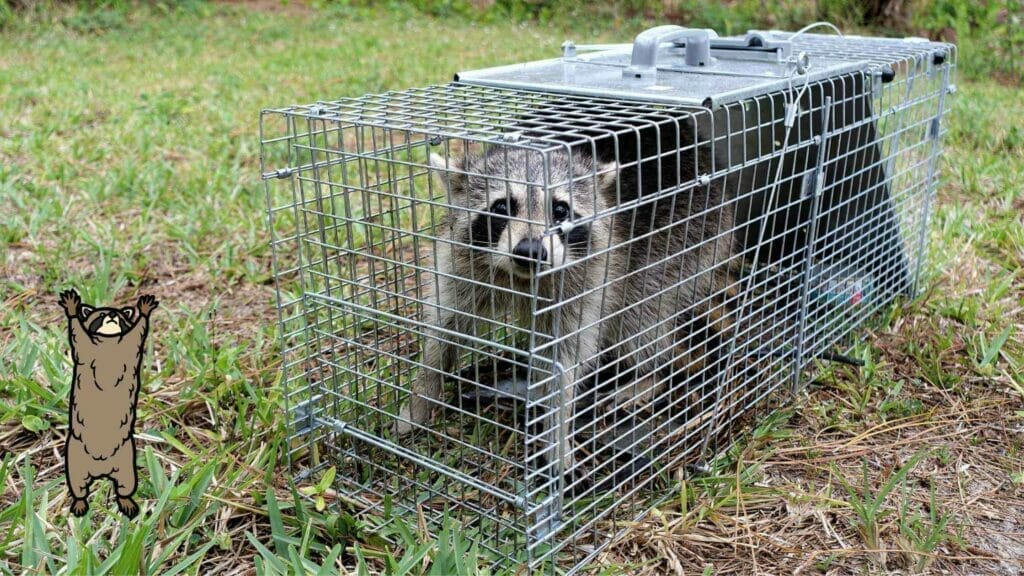
If you have noticed raccoons living under your deck, you may be wondering how to get rid of them. Raccoons can cause damage to your property, and they can be carriers of diseases that are harmful to humans and pets. In this section, we will discuss some effective raccoon removal techniques that you can use to get rid of raccoons under your deck.
Raccoon Removal Techniques
- Light up the area: Raccoons are nocturnal animals, and they prefer to stay in dark areas. By installing bright lights under your deck, you can make the area less attractive to raccoons. Motion-activated lights are particularly effective, as they will startle the raccoons and discourage them from coming back.
- Remove food sources: Raccoons are attracted to food, so it is important to remove any potential food sources from the area. This includes pet food, bird feeders, and garbage cans. Keep your trash cans sealed tightly, and bring them inside at night.
- Use repellents: There are several natural and commercial repellents that can be used to keep raccoons away. Some popular options include ammonia, cayenne pepper, and predator urine. These can be sprayed around the perimeter of your deck to discourage raccoons from coming near.
- Seal up entry points: Raccoons will often enter your deck through small openings or gaps in the structure. Seal up any holes or cracks with caulk or wire mesh to prevent them from getting in.
- Use humane traps: If you have tried other methods and still have raccoons living under your deck, you may need to use a humane trap. These traps will capture the raccoon without harming it, allowing you to release it safely elsewhere.
- Call a professional: If you are not comfortable removing the raccoons yourself, or if you have baby raccoons living under your deck, it is best to call a wildlife removal professional. They will have the tools and expertise to safely remove the raccoons and prevent them from coming back.
Pro Tip: To keep raccoons away from your deck in the future, make sure to keep the area clean and free of potential food sources. Regularly clean your grill and outdoor furniture, and store pet food and bird feeders inside at night.
Preventing Raccoon Infestation
If you want to avoid having raccoons under your deck, prevention is key. Here are some tips to keep raccoons away from your property.
Raccoon-Proofing Your Deck
The first step in preventing raccoon infestation is to make sure your deck is raccoon-proof. Raccoons are nocturnal animals, and they are attracted to dark, quiet places to sleep during the day. To keep them from setting up camp under your deck, you need to make sure they can’t get in.
One way to do this is to install a barrier around the perimeter of your deck. You can use hardware cloth or chicken wire to create a fence that extends at least a foot below the ground. This will prevent raccoons from digging under the deck to gain access.
Another option is to install lattice panels around the base of your deck. This will create a barrier that raccoons can’t climb over.
Raccoon Repellents
If you want to take extra precautions, you can use raccoon repellents to keep these pests away. There are several options available, including:
- Ammonia: Soak rags in ammonia and place them around the perimeter of your deck. Raccoons hate the smell of ammonia and will stay away.
- One-way door: Install a one-way door on the entrance to the space under your deck. This will allow raccoons to leave, but they won’t be able to get back in.
- Cider vinegar: Place a bowl of cider vinegar at the base of your deck. Raccoons find the smell foul and will avoid the area.
Pro Tip: Remember that prevention is key when it comes to raccoon infestation. By taking the necessary steps to raccoon-proof your deck and using repellents, you can keep these pests away from your property.
Precautions and Considerations
When dealing with a raccoon problem under your deck or porch, there are several precautions and considerations you should keep in mind to ensure the best results.
First, it’s a good idea to get rid of any food sources that may be attracting raccoons to your property. Raccoons love to scavenge for food, so make sure to seal up trash and keep any pet food inside.
It’s also important to remember that raccoons are intelligent and can easily rip through materials like wood and plastic. Raccoons may also carry diseases like rabies and can leave behind feces and urine that can be harmful to humans and pets. So, it’s essential to wear gloves and a mask when cleaning up any raccoon droppings and urine.
When trying to prevent raccoons from trying to make a den site under your deck, one of the best ways is to make the area less appealing to them. This can be done by putting a mechanic’s light near the entrance of the den site, as raccoons don’t like bright lights. You can also try placing fabric soaked with ammonia around the entrance to the den space, as this can make the area less attractive to raccoons.
If you do end up with a family of raccoons living under your deck or shed, it’s best to call in wildlife removal experts to handle the problem. Remember that raccoons are excellent climbers and can easily escape a raccoon trap if it’s not set up properly. Wildlife control professionals know how to get rid of raccoons safely and effectively.
Pro Tip: Create a trench around the perimeter of the deck or porch and bury a wire mesh fence at least one foot (0.3 meters) deep. This can help prevent raccoons from entering the deck area from below. Additionally, make sure to raccoon-proof any outside of your home by sealing up any holes or gaps that raccoons could use to gain access.
FAQ: Get Rid of Raccoons From Under The Deck
How can I get rid of raccoons under my deck?
The best way to get rid of raccoons under your deck is by using humane methods such as live-trapping and releasing them in a nearby wooded area. You can also use repellents like ammonia or predator urine to keep them away.
What can I do to keep raccoons away from my deck or shed?
The easiest way to keep raccoons away from your deck or shed is to secure the entrance points and make sure there are no food sources available. You can also use motion-activated deterrents or install a fence to keep them out.
What should I do if I find raccoons under my deck?
If you find raccoons living under your deck, it’s important to address the situation as soon as possible to prevent any damage or health risks. Contact a professional wildlife control service or follow humane removal methods to get rid of them.
Is it safe to live in a house where raccoons are living in the attic or den?
It is not safe to live in a house where raccoons are living in the attic or den. Raccoons carry diseases and can pose health risks to humans and pets. It’s important to have them removed by a professional animal removal service.
What’s the best way to get rid of raccoons under my deck without harming them?
Using humane methods such as live-trapping and relocating them is the best way to get rid of raccoons under your deck without harming them. Also, by removing any food sources and sealing off entry points, you can discourage them from coming back.
How can I raccoon-proof my deck to prevent them from entering?
To raccoon-proof your deck, make sure to seal off any holes or entry points and remove any food sources. A fence or motion-activated deterrents can also be effective in preventing them from entering.
Is it common to find raccoons living under the deck?
Yes, it’s common to find raccoons living under the deck as they provide shelter and protection. However, it’s important to address the situation promptly to prevent any damage or health risks they may cause.
What should I do if a mother raccoon with babies is living under my deck?
If a mother raccoon with babies is living under your deck, it’s important to contact a professional wildlife control service. Attempting to remove them on your own can be dangerous and may result in harm to the raccoons.
Can raccoons easily rip through wood or other materials to enter the deck or shed?
Yes, raccoons can easily rip through wood or other materials to enter a deck or shed. That’s why it’s important to secure all entry points and raccoon-proof the area to prevent them from coming in.
What should I do if I find a skunk or other wildlife living under my deck or shed?
If you find a skunk or other wildlife living under your deck or shed, contact a professional wildlife control service to remove them. Attempting to remove them on your own can be dangerous and may result in injury.



